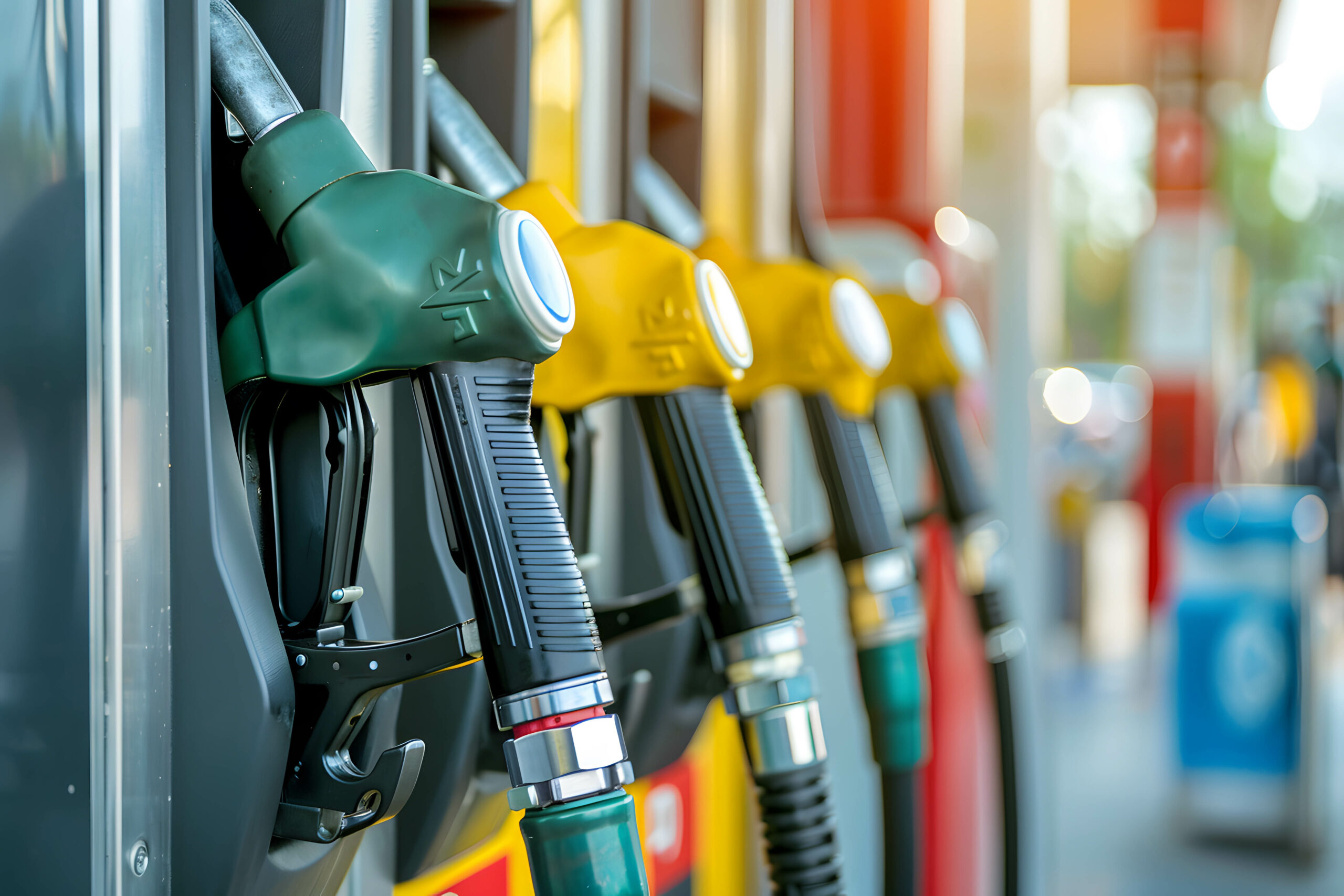There are several reasons why one would want to know the fuel consumption of a vehicle as versatile as the Toyota Noah. For one, fuel-efficient vehicles save a lot of money in the long haul.
Meanwhile, beyond its cost-saving benefits, vehicles that consume less fuel than their counterparts have also been shown to reduce carbon footprint. So, if you’re interested in decreasing greenhouse gas emissions while using your Toyota Noah, this article is a must-read!
Table of Content
- Toyota Noah Fuel Consumption
- Table of Content
- Fuel Efficiency Overview
- Tips for Maximizing Toyota Noah Fuel Efficiency
- Stable Driving
- Regular Maintenance
- Reduce the Weight
- Air Conditioning & Windows
- Parting Words
Fuel Efficiency Overview
Despite being first produced in November 2001, it wasn’t until 2017 that the first Toyota Noah hybrid model was released. Prior to this time, Toyota had released two generations of the Noah fuel model. The minivan, known for its tall build and boxy design, can comfortably seat seven passengers.
Thanks to its bold front design, dual power sliding doors, and character lines, the vehicle maintains a functional and aesthetic appeal. Meanwhile, the interior of the Noah clearly prioritizes comfort. There is ample headroom and legroom, the seating arrangements can be reconfigured, the dashboard is placed within easy reach, and there are several features included for the safety, infotainment, and convenience of passengers.
Since releasing the Toyota Noah hybrid model in the third generation, however, a number of new features have been introduced. For one, rather than the Super CVT-I used in gasoline models, the hybrid model uses an electric continuously variable transmission (eCVT). Also, the hybrid model relies on a 1.8L engine; in contrast to the 2.0L engine size of the fuel model.
One area newbies might think the fuel models shine is in the fuel capacity. While the fuel model’s tank gets filled at 55 litres, the hybrid Toyota Noah fuel tank capacity is somewhere around 50 litres. Nonetheless, with the Nickel Metal Hydride Battery and the 5JM AC synchronous motor, the Toyota Noah fuel efficiency for the hybrid models is better than that of the gasoline models.
The table below pretty much sums up the similarities and differences between both models of the Toyota Noah:
| Specifications | Toyota Noah (Gasoline model) | Toyota Noah (Hybrid model) |
| Engine Capacity | 1,986cc | 1,797cc |
| Fuel Consumption | 16.0km/L | 23.8km/L |
| Key Features | Variable Valve Timing, Electric Power Steering, Charging Control, Idling Stop Device. | Hybrid System, Electric Continuously Variable Transmission. |
| Fuel Tank Capacity | 55 litres | 50 litres |
| Transmission Type | Super CVT-I (Super Continuously Variable Transmission/7-speed Sequential Shiftmatic). | Electric Continuously Variable Transmission. |
| Engine Power (HP) | 152 horsepower | 134 horsepower |
| Carused.jp Price | $700 – $1,500 (FOB) | $4,000 – $6,300 (FOB) |
Tips for Maximizing Toyota Noah Fuel Efficiency
With all that said, there’s no denying that the hybrid models of the Noah are more expensive than the fuel models. For those who want to maximize the Toyota Noah fuel consumption but can’t cough out the cost of the hybrids, all hope is not lost. In fact, by following the tips below, users can also improve their hybrid Toyota Noah fuel efficiency.
Stable Driving
Drivers must cultivate the habit of predictive driving. This involves keeping one’s mind on the road ahead to plan moves in advance. By practising this form of mindful driving, the rate at which you slam hard on the brakes when at a traffic light or accelerate suddenly at the foot of a hill will reduce—thereby, improving fuel economy. Instead, you’ll become better at coming to a slow halt or building up the acceleration, as demanded.
Additionally, do not drive too fast (>100km/h) or too slow (<50km/h), as either will result in your Toyota Noah using up more fuel. Fortunately, recent models of the Noah now incorporate the Cruise Control feature. By utilizing this feature on the highway, you can maintain a consistent pace and reduce fuel consumption.
Regular Maintenance
Beyond your safety – which is most important – your noah car also needs regular inspections and maintenance for proper fuel efficiency. Tight brakes, inflated tyres, a defective engine, a clogged-up air filter, damaged spark plugs, a defective engine coil, leaks in the fuel circuit, damaged injectors, damaged fuel filters, a faulty oxygen sensor and a faulty mass air flow sensor, among others, will increase your vehicle’s fuel consumption.
By making a prompt visit to the mechanic, you’ll be saving fuel costs, avoiding higher repair costs in the future, reducing harmful emissions and protecting the lives of passengers. An additional pro tip is to use only good quality fuels and engine oils as poor quality ones are bad for your Toyota Noah fuel efficiency and engine longevity.
Reduce the Weight
Ever tried climbing a hill with a backpack full of sand and stones? Maybe not; but you can picture how it will feel—stressful and physically exerting. That’s exactly how the vehicle feels when there’s too much load in it. The car will, inevitably, need more power (and thus, use more fuel) to move from one point to another.
In fact, for every extra 50 KG foisted on your car, you decrease its fuel economy by about 2%. So, while you might want to increase how much you’ll be getting paid during a commercial commute, think twice before loading up next time. You just might be journeying in a circle.
Air Conditioning & Windows
At some point, everyone has heard that air conditioning is the number one culprit for higher fuel consumption. The truth is, it’s not that straightforward. Truly, the air conditioning system puts more load on your engine, which causes more fuel to be consumed. The common advice, then, is to keep your windows down most of the time. However, at speeds higher than 80km/h, the wind resistance increases considerably; increasing fuel consumption. In situations like this, it’s simply smarter to drive with the AC on.
Recommendation
The Toyota Noah offers drivers a choice between a practical gasoline model or a more environmentally friendly hybrid option. Both deliver a comfortable and spacious interior, making them ideal for families or those who need to carry passengers and cargo regularly.
Ultimately, the best choice for you depends on your priorities and budget. On the one hand, the gasoline Noah offers a good balance between affordability and fuel efficiency, especially with the tips provided for maximizing mileage. On the other hand, the hybrid Noah shines with its exceptional fuel economy and reduced emissions, making it a great choice for those who prioritize environmental impact. While it’s initial cost might be higher, the long-term fuel savings can be significant.
On Carused.jp, we offer a wide range of Japanese-used vehicles to choose from. Whether you prefer the Toyota Noah hybrid model or the gasoline model, we have versions from different years and trims for you to choose from at the best price.



